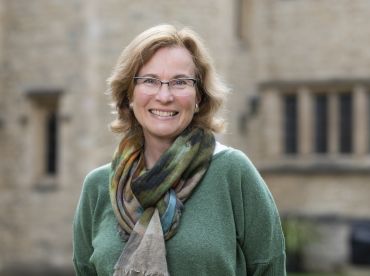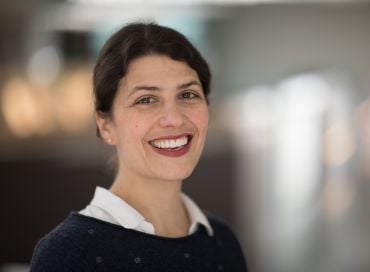Four Oxford University academics are to co-lead ambitious new research projects backed by European Research Council (ERC) Synergy Grants , part of the EU's Horizon Europe research and innovation programme. Synergy Grants foster interdisciplinary and international collaboration between outstanding researchers, enabling them to combine their expertise, knowledge, and resources to push the boundaries of scientific discovery.
This year, 57 research projects were awarded a Synergy Grant out of 548 submitted proposals, a success rate of approximately 10.4%. The Grants, worth up to 14 million Euros over a 6-year period, support groups of researchers to use innovative approaches to tackle complex scientific problems.
About the Oxford University recipients:
Professor Francis Brown Professor Francis Brown. Photo credit: John Cairns.
Professor Francis Brown. Photo credit: John Cairns.
Professor Brown said: 'This grant recognises the importance of building bridges between mathematics and physics. As a mathematician, I'm excited to team up with three colleagues from theoretical physics, each of whom brings different kinds of expertise to the table.'
The Mathematics of Scattering Amplitudes project is a collaboration between the University of Oxford; the Max Planck Society, Germany; Trinity College Dublin; and Uppsala University, Sweden.
Professor Helena Hamerow Professor Helena Hamerow. Photo credit: John Cairns.
Professor Helena Hamerow. Photo credit: John Cairns.
Professor Hamerow said: 'MEMELAND will transform our understanding of the impact of medieval farming by revealing plants and animals that are normally invisible in the archaeological record. It will allow us to situate excavated remains from medieval settlements within a wider eco-system, something I couldn't have imagined doing even a few years ago'.
MEMELAND involves a collaboration between the University of Oxford; The Arctic University, Tromsø (the coordinating institution); Paris Lodron Universität, Salzburg; the Swiss Federal Institute of Aquatic Science and Technology, Zurich; and Charles University, Prague.
Professor Aditi Lahiri Professor Aditi Lahiri.
Professor Aditi Lahiri.
Professor Aditi Lahiri said: 'I am deeply honoured to receive this grant. In the current academic atmosphere where Humanities is thought to be of no real importance, this grant suggests that the ERC appreciates our work.'
The project 'Phonological cognisance and allied linguistic representations: acquisition, bilingualism, change and script' is a collaboration between the University of Oxford; Radboud University Nijmegen, the Netherlands; and the University of Agder, Norway.
Professor Elena Seiradake Professor Elena Seiradake.
Professor Elena Seiradake.
Professor Seiradake said: 'Cutting-edge research requires international collaboration that brings together the best teams for the job. I am thrilled about the opportunity to work with the outstanding students and staff in my team here at Oxford, and with our collaborators in France and Spain, to address this very important research question.'
The project is a collaboration between the University of Oxford; the French National Centre for Scientific Research (CNRS), France; and the University of Barcelona.
Further information about the 2024 ERC Synergy Grants can be found on the ERC website .






